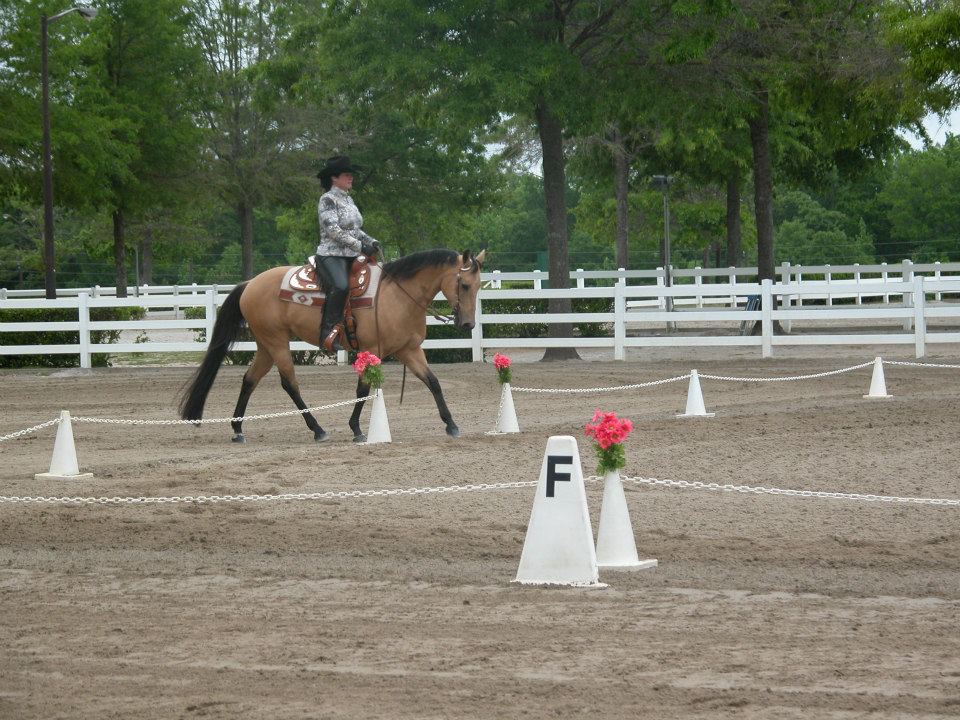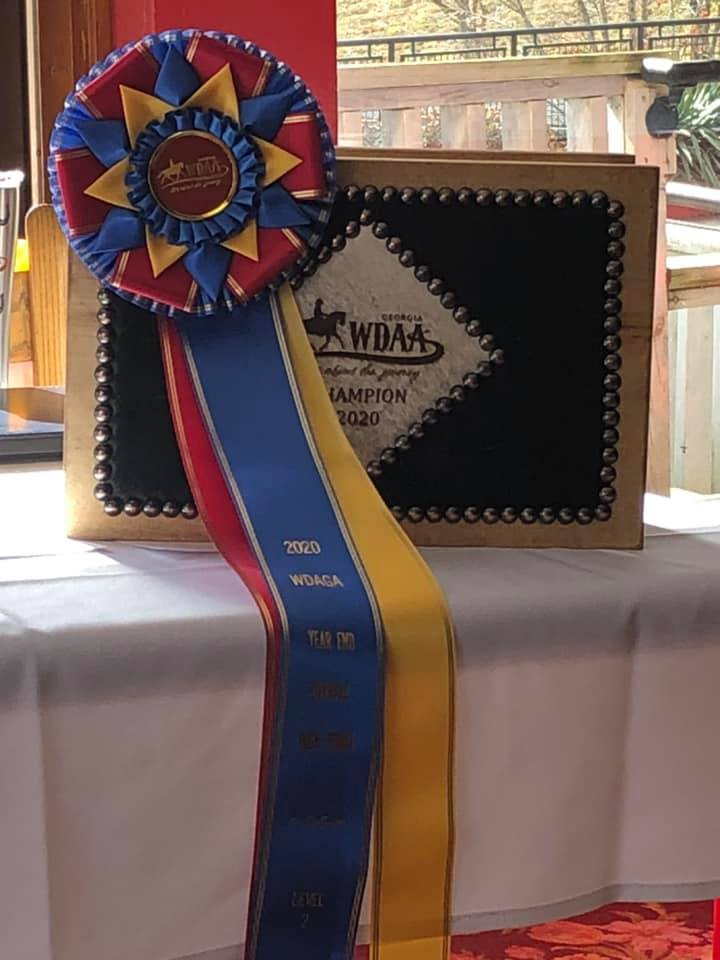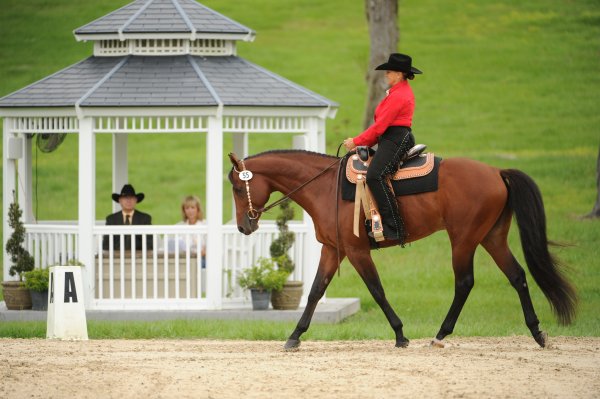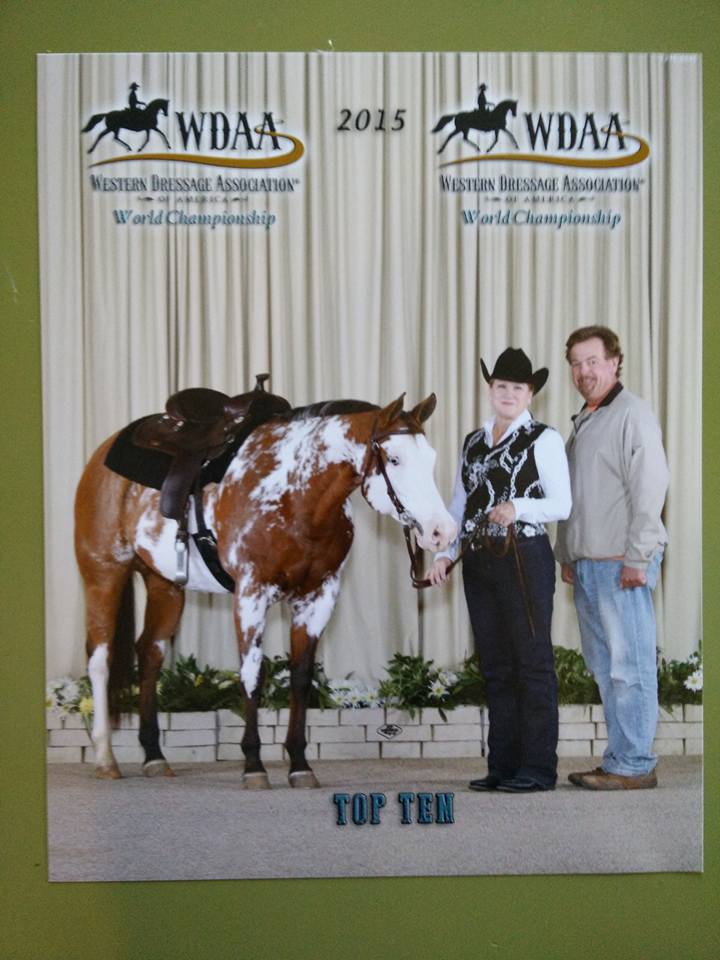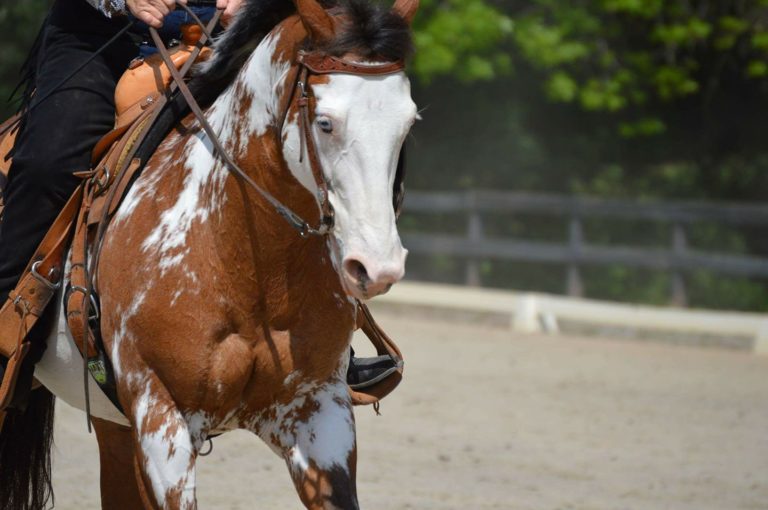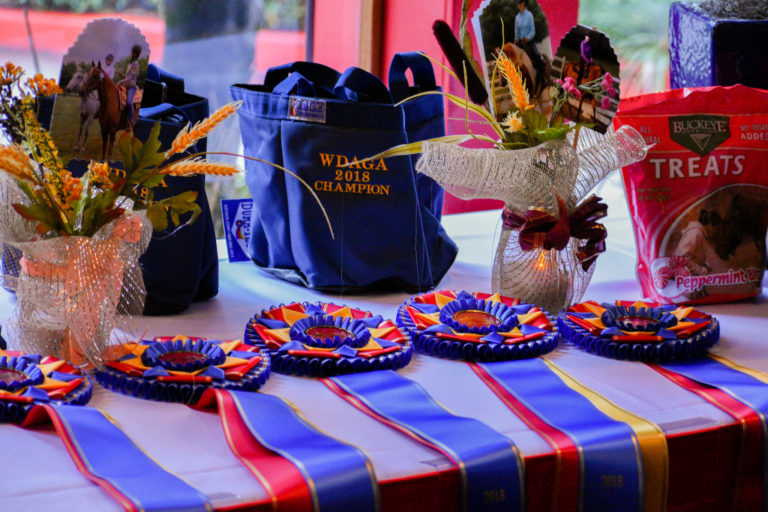Georgia Western Dressage Trainer’s Corner: Cheryl Pritchard
Cheryl Pritchard is a Western Dressage Association of America Train the Trainer graduate. She is also co-founded the Western Dressage Association of Georgia. Below is a question and answer session with Cheryl about her Western Dressage journey.
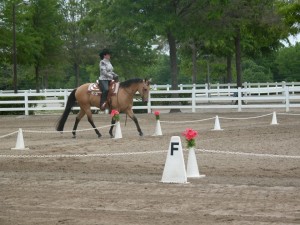
Where do you give lessons or provide training?
I own and operate Simply Dun Farm in Conyers Georgia. I train horses and give lessons to students from 3 to 67. I also conduct clinics both onsite and off-site. I accept horses on a “trailer in” basis as well. I am also able to do video evaluations of test rides.
How should people contact you?
Address: 2730 Bethel Rd NE, Conyers, GA 30012 Email: Cheryl@theHorseBusiness.com
Phone: (404) 583-6066
Facebook: Cheryl Freda Pritchard
Website: www.SimplyDunFarm.com
Why Western Dressage?
Western Dressage gives stock type horses the chance to demonstrate their training level. It allows finely trained horses to excel. Western Dressage is a great way to ensure your horse is being trained correctly.
Describe your personal journey to become a Western Dressage trainer.
I have a background in Classical Dressage and Reining. I also have competed, trained and taught Hunters, Equitation, Western Pleasure and Horsemanship. The discipline of Western Dressage is perfect fit for me. It combines correct movement and precise riding. I have attended the National Train the Trainer Session, done several clinics, demonstrations and am finalizing my Judging Certification in Western Dressage.
What’s the most challenging aspect of Western Dressage?
Education is the most challenging aspect. Teaching Classical Dressage riders the definition of the movements and also teaching Western Pleasure riders how to ride dressage tests is the most challenging. Since the sport is still new, some people think that it is just Dressage in a Western saddle or Western Pleasure in a pattern, it is not.
What sort of horse excels at Western Dressage?
Any horse that has a willing attitude and is physically sound does well in Western Dressage. The discipline is not specific to any particular breed. I have worked with Thoroughbreds, Warmbloods, Quarter Horses, Appaloosas, Arabs, Aztecas, Paint Horses, Foxtrotters and Walking Horses. If the horse is sound and willing , Western Dressage will help them in their training. The best horse for Western Dressage is one that is responsive to rein, leg and seat cues and has a free way of moving.
What sort of rider excels at Western Dressage?
A rider who loves precision and working with their horse for better riding will excel in Western Dressage. I have found that when people work on Western Dressage, it will also help in other areas.
What’s the one thing you would tell anyone considering competing in Western Dressage?
Try it! Once people try Western Dressage, they usually become hooked. If you don’t have a horse that will do it, ride a horse that has been trained in it. You will love it!
How would you describe your Western Dressage training style?
My style is very hands on. I will show someone how it looks on either my horse or theirs. People can also ride my horses while I work with their horse so that they can feel what I am talking about. If someone has a background in Classical Dressage, Western Pleasure or Natural Horsemanship, I can easily translate Western Dressage for them as I have experience in all these areas. I find that by explaining and demonstrating, HOW and WHY you do something, helps people understand it better.
What’s the most common mistake you see people make in the Western Dressage show ring?
The most common mistake people make is not knowing what the judge is expecting. People need to understand that Western Dressage is a discipline and not just dressage in a western saddle or another western pleasure pattern. The level of judging is getting better and better and so are the competitors.
How do you memorize a test?
I am a visual learner. I will read the test, walk it and then ride it. If I can see a picture, I can duplicate it.
What do you wear in the show ring?
I will wear my western chaps, a show shirt and my western hat. I like to keep my attire classical and not too flashy in order to honor the dressage aspect of the discipline. As long as the style of dress matches the style of tack, you are good to go.
What kind of bit/tack do you use in the Western Dressage arena?
I ride in my reining saddle or my Western Show saddle. I use split reins and show headstall. The bit that I use depends upon the horse that I am showing.
What’s the most surprising thing you’ve learned from Western Dressage?
The most surprising thing I’ve learned from Western Dressage is that once a classical dressage rider tries it, the change of saddle type also changes how they look at working a horse and opens their eyes to new ways to ask for a maneuver.
Describe one of your clinics.
My clinics start off with a demonstration with answering general questions. I also review tack and discuss if it is legal or not. I will also describe and show some of the common faults so that attendees can see the difference. Then each rider will ride a test. I will score the test, then we will discuss the test and how it can be improved and WHY. Then the rider is able to ride the test again to see the improvements. Questions are taken at anytime, but the focus will be on the rider and horse. My horses are also available to ride for a test.
What’s been your most rewarding experience with Western Dressage?
The most rewarding experience with Western Dressage is watching people grow and have fun with their horses. Zip (Okie Dokie Zip) is a reining ApHC mare and Western Dressage has given her another avenue to compete. I have seen Western Pleasure horses warm up with Western Dressage and become better in the ring. I had a thoroughbred who was very tense and then he started Western Dressage and he is now relaxed, supple and moving correctly and soundly.
How do you plan to grow the sport in Georgia in 2016?
In 2016, I will continue to do clinics, training and lessons. I am an advocate for the local saddle club which has now expanded the classes offered in Western Dressage. I have a regular column that is published in the “Atlanta Horse Connection” magazine about Western Dressage. My clients and I will continue to showcase this sport and we plan to compete in the WDAA World Show in 2016.
What do you think is the next big thing in the world of Western Dressage?
The next big thing in Western Dressage is more advanced tests and an increase in the discipline. More people are learning about Western Dressage and I see this area growing with more and more acceptable in the other equine breeds and venues.
Is there anything else you’d like to add?
Western Dressage is a new sport. It will evolve and grow quickly. This is an exciting time to get involved in a new area that will only help us become better riders and better horsemen. You truly need to try Western Dressage. It will make you smile.
